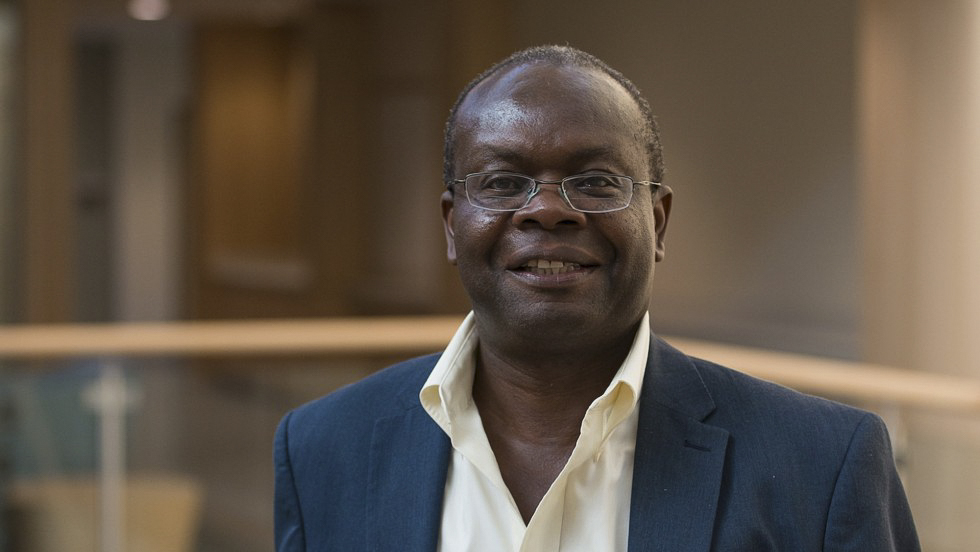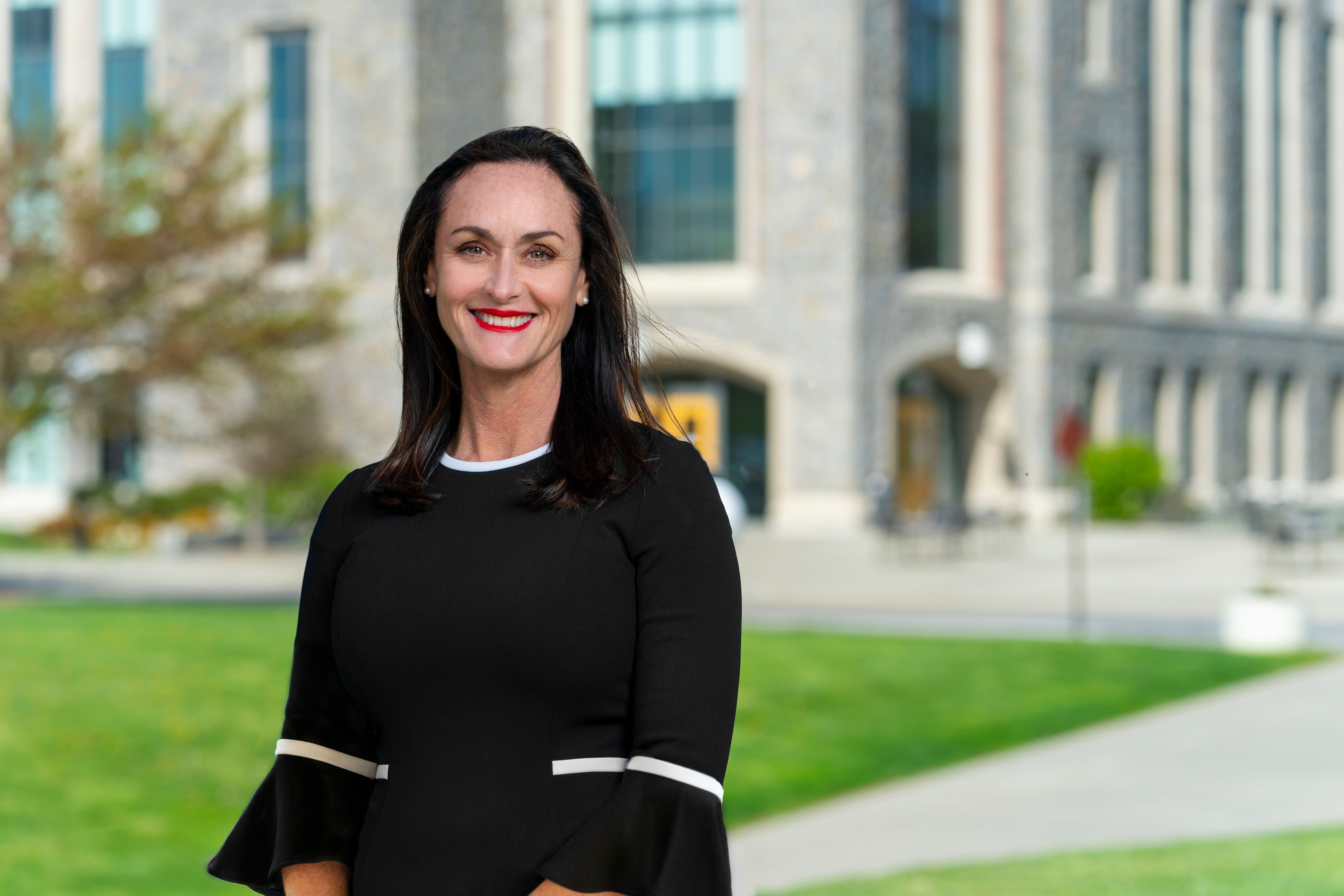Fall/Winter 2025-26

Marist Announces First Senior Leadership Position Dedicated to Diversity, Equity, and Inclusion
Following a national search, Marist College announced the appointment of Dr. Edward P. Antonio to the newly created position of vice president of diversity, equity, and inclusion (DEI). Antonio brings nearly 20 years of advanced DEI experience to Marist, having served most recently as chief diversity officer at Concordia College in Minnesota. He also has 25 years of experience teaching undergraduate and graduate students at universities in Europe, Africa, and the US. At Marist, he is leading the inaugural office of Diversity, Equity, and Inclusion, partnering with President Kevin Weinman, his colleagues on the President’s Cabinet, and faculty and staff across the campus to develop a strategic direction for DEI initiatives, build community, establish a system of accountability, and develop resources to support diversity initiatives.“We must continue to make progress towards the College’s goal of becoming a more diverse, inclusive, and equitable institution,” said Weinman. “While this work is the responsibility of each and every member of our community, it also requires vision and coordination by skilled leaders. Dr. Antonio has a proven track record as a DEI strategist and has implemented initiatives at other academic institutions with great success. I look forward to working closely with him to achieve similar successes here at Marist.”“I am excited to be joining Marist at this pivotal moment in its history,” said Antonio. “What is especially exciting about the role of the vice president for diversity, equity, and inclusion at Marist are the many opportunities it provides to motivate and galvanize the College for good, transformative change.”Antonio had served at Concordia College since 2017, where he created DEI training and educational programs to support faculty and staff in their work with students. He also helped to create a yearlong Inclusive Teaching and Diversity Leadership Certificate program for faculty and staff and provided training to academic departments on implicit bias and belonging. In partnership with campus leaders, he also created and secured various scholarship programs for students from marginalized communities.In addition, Antonio supported and consolidated LGBTQ+-related work at Concordia, overseeing a program designed to empower students to develop empathy and understanding of difference through storytelling. He participated in the creation of the Bias Incident Response Team and chaired the Diversity Council.Prior to his time at Concordia, Antonio served as associate dean of diversities at Iliff School of Theology in Colorado. There, he created the Office of Diversity and played a lead role in the strategic planning process. He worked to ensure that DEI was embedded in the curriculum, directed the Social Justice Program, and coordinated one of Iliff’s signature programs on identity, power, and difference. He was also responsible for creating and overseeing the Title IX office.Commitment to Diversity, Equity, and Inclusion at MaristMarist’s commitment to DEI and social justice is reflected in initiatives such as the Marist College Diversity Leadership Institute and the Marist Center for Social Justice Research. Antonio will build on these initiatives while also creating new opportunities. As a member of the President’s Cabinet and a visible presence on campus, he will also have a strong voice in all institutional initiatives and priorities.“The College community is already doing important social justice work toward equity, diversity, and inclusion,” said Antonio. “My work and leadership at Marist will be informed by the values of equity, inclusion, and belonging. I will work with all stakeholders, with all members of the College community to embed these values in everything that Marist is about and in all its structures, policies, procedures, practices, and relationships. I know that students, staff, and faculty are ready to go beyond diversity to the next phase, to become a more deeply welcoming and inclusive college with a strong culture of belonging, an actively anti-racist culture, and a shared equity mindset. I am thrilled to have the opportunity to lead and guide this essential work.”
15 Oct 2022

Three Marist College professors within the School of Social and Behavioral Sciences have received prestigious Spencer Education Grants to enhance their research focused on social justice and equity.
Dr. Carol Rinke and Dr. Christina Wright Fields together have been awarded a Spencer Education Grant to conduct their research entitled The Storied Experiences of Teachers of Color through Photovoice. Dr. Vanessa Lynn also received the grant to study the undergraduate education and faculty experience of criminology and criminal justice programs and the curriculum surrounding race. Lynn’s research is entitled Race Pedagogies in Criminal Justice/Criminology.Rinke, who is assistant dean for the School of Social and Behavioral Sciences and associate professor of education, and Wright Fields, assistant professor of education, are partnering with researchers from Rutgers University-Newark, including Rinke’s prior research partner, Dr. Lynnette Mawhinney.This work will continue and extend Rinke and Mawhinney’s co-authored book, There Has to be a Better Way: Lessons from Former Urban Teachers, which was released in 2019. “In previous research, we found that teachers of color were subject to microaggressions in many educational workspaces. This project is an effort to dig deeper into the particular experiences of teachers of color in P-12 schools, using their own perspectives to shape counter-narratives of schooling,” said Rinke.The research will utilize the Photovoice methodology in partnership with three groups of 20 educators to capture their experiences with visual findings. This methodology allows research participants to capture their everyday realities and visually provide valuable insights and data to the investigators.“We selected this methodology and applied it to P-12 teachers because we valued the way it encouraged participants to capture their own realities, rather than an outside researcher doing so on their behalf — we found it to be an empowering approach,” said Rinke.The motivation for this research stems from the frequent experiences of educators challenged by a system that is resistant to change and adaptability, leading to increased turnover within the profession. Rinke, Wright Fields, and the researchers at Rutgers University-Newark aim to understand the disillusionment for educators of color. “This project is an effort to engage directly with teachers, understand what may be some sources of this disillusionment for teachers of color in particular, and engage educators in a collective effort to challenge those experiences,” said Rinke. Dr. Vanessa Lynn, assistant professor of criminal justice, alongside researchers at Idaho State University, will conduct research over the next three years on how faculty learned how to discuss race in Criminal Justice and Criminology courses. “Our study aims to examine how the educational experiences of faculty who teach in criminology and criminal justice programs shape the pedagogical practices related to race within their classes,” said Lynn.Lynn, along with Dr. Deirdre Caputo-Levine of Idaho State University, will interview faculty across the nation and examine professors' syllabi in undergraduate-level courses. “Our study will allow us to investigate the relationship between graduate school experiences and the ways that faculty members construct race as an object of knowledge within courses in criminology and criminal justice programs,” said Lynn.In her research, Lynn hopes to understand how academic departments educate on bias within the criminal justice system.With three faculty members being awarded grants from the Spencer Education Research Foundation across two different studies, Rinke highlights the importance of their social justice and equity focus.“It’s quite significant that three faculty members from within Social and Behavioral Sciences have been awarded grants from the Spencer Educational Research Foundation for projects focused on issues of social justice and equity,” said Rinke. “The long-standing efforts of our faculty to engage with the local community around topics of mutual importance are now being recognized externally and supported in their application and expansion.”
09 Oct 2022

A National Institutes of Health grant will offer Marist students the opportunity to complete 10-week lab-based research experiences over three summers.
Marist has received a $346,000 grant from the National Institutes of Health to study the chromatin-mediated maintenance of genomic integrity in germ lines.Associate Professor of Chemistry Elisa Woolridge is leading a team comprised of Associate Professor of Biology Megan Dennis; part-time Marist faculty member Dr. Paula Checchi; Dr. Teresa Lee, assistant professor of biology at the University of Massachusetts–Lowell; and Dr. Gordon Lithgow, director of interdisciplinary research at the Buck Institute for Research on Aging in California.Through this grant, Marist students have the opportunity to complete 10-week research experiences over three summers in the laboratories of Drs. Lee and Lithgow. In addition, Marist students will benefit from the development and implementation of course-based undergraduate research experiences within several of Marist’s biology laboratories. The work is anticipated to provide insight into the causes of human reproductive disorders and will generate findings that inform therapeutic strategies for infertility.
07 Oct 2022

The National Science Foundation support will allow students to focus on academic success and improve performance in gateway STEM courses as they pursue undergraduate degrees in biology, biochemistry, chemistry, or environmental science.
The National Science Foundation has awarded Marist’s School of Science a $1,480,254 grant to support high-achieving low-income students in STEM majors. Eleven freshmen, majoring in biology, chemistry, biochemistry, and environmental science, started their journey as scholars in the program this fall.The project, entitled "Gateway to Success: Combining Financial, Academic, and Psychosocial Supports to Promote Academic Success of Low-Income STEM Majors," was spearheaded by Dean of the Marist School of Science Alicia Slater and Associate Dean Neil Fitzgerald. School of Science Associate Dean Neil Fitzgerald. Photo: Carlo de Jesus/Marist College.“This grant is a major milestone for the School of Science and a valuable tool in our efforts to help all students reach their full potential,” said Slater. “It is our hope that theprograms we begin for the S-STEM scholars will promote the academic success of alllow-income students in the future.”The overall goal of the project is to increase STEM degree completion among high-achieving undergraduates with significant financial need. In particular, the project willallow students to focus on academic success and improve student performance in gateway STEM courses. It includes strong mentoring and career planning support while fostering a sense of belonging to both the campus and community and adding to the professional formation of students’ science identities.“Expanding educational opportunity is one of our very highest priorities,” said Marist President Kevin Weinman. “This grant increases Marist’s ability to attract, enroll, and retain a diverse group of talented students regardless of their financial circumstances, and we are grateful to the NSF for recognizing the importance of this work.”Over its six-year duration, this project will cover all billable charges for a total of up to 23 full-time students or “S-STEM scholars” pursuing undergraduate degrees in biology, biochemistry, chemistry, or environmental science as well as a laptop and research and travel funding. Students will participate in a funded summer bridge program, take gateway classes as a cohort, reside in a living–learning community, have dedicated faculty advisors, and receive experiential and employment opportunities to reduce financial need and provide valuable discipline-based experience.All S-STEM scholars will also take Marist’s liberal arts core, reflecting Marist’s mission of developing well-rounded students.
01 Oct 2022